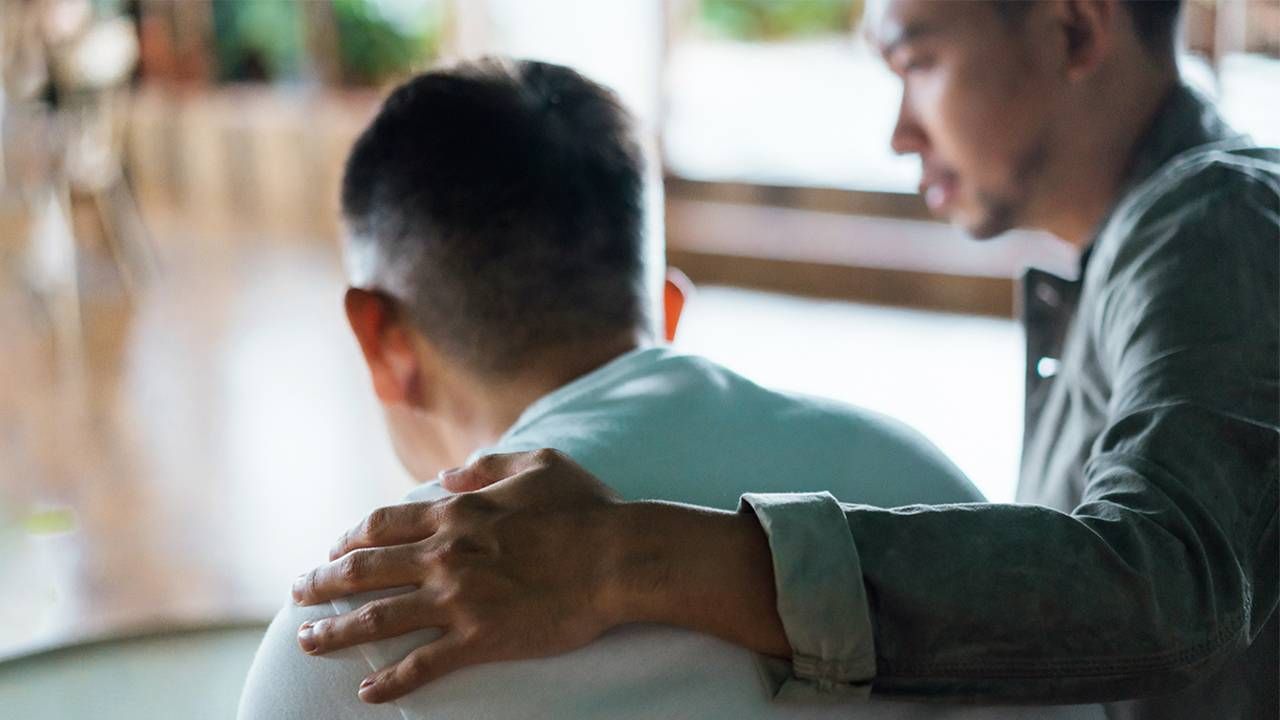What Not to Say or Do When Your Friend Has Cancer
An ovarian cancer survivor offers 10 suggestions on the best ways to help and what to avoid
Finding out a friend or relative has cancer is upsetting. Despite the advancements in therapies, it is still a terrifying diagnosis, and COVID-19 has presented new challenges to patients, families and friends alike.
I was diagnosed with ovarian cancer in 2019, and it was the most grueling period of my life. Friends and relatives came along on my journey, providing visits, gifts and meals: the outpouring of love and support was truly breathtaking.

However, I did learn a bit about what NOT to say or do when your friend or relative has cancer. (I was guilty of doing many of these before I became a patient.)
Everyone wants to say something helpful, but a cancer patient is likely facing the scariest moment of his or her life.
If you are feeling unsure, consider these thoughts from a "cancer insider."
- Don't ask a cancer patient to tell you how you can help. I know this one sounds strange, but a cancer patient can be so overwhelmed, they may not even know what they need or want. Offer specific suggestions that work for you: "I'd like to bring your family dinner/groceries. Is Wednesday good?" Most newly diagnosed or treated cancer patients aren't up for making decisions, except for the lifesaving kind.
- Don't tell cancer folks the key to getting better is to "think positive." Everyone wants to say something helpful, but a cancer patient is likely facing the scariest moment of his or her life. Let them handle it mentally the way they see fit. And listen when they need a sounding board, even for the negative stuff.
- Don’t tell them what to eat. Going on a super healthy diet is a great idea, but when you are recovering from surgery followed by several months of chemo, you are mostly trying to hold down whatever you can. (Pass the hard-boiled eggs, please.) Do feel free to bring them healthy meals and snacks; the food I received was delicious and so considerate, it literally brought tears to my eyes.
- Don’t compare your friend’s cancer to your appendectomy. We know you are trying to be empathetic, but trotting out stories of your long-ago surgery is just so much noise to a cancer patient. Caveat: if you are a cancer survivor, or know someone who is, we love to hear about cancer patients who had good outcomes. In fact, those are our favorite stories! (“You’re still here 20 years later? Tell me more!”)
- Don’t bring up relatives or friends who died from cancer, full stop.
- When visiting, calling, or taking a walk with a cancer patient, don't repeatedly ask them every ten minutes "Are you ok?" We know you mean well, but we are trying to forget we are sick, not be reminded of it. We'll let you know if we need a break.
- Don't make decisions for a cancer patient. My husband would often say "You don't need to go to (insert event here.)" Indeed, I was guilty of this when my father was dying of cancer. I often told him to "go back to bed" or "sit down and rest." Don't advise someone who has lost complete control of their life what they should or shouldn't do. We will do what we want, thank you very much! It's your job to listen and help us achieve our goals when possible.
If we ask, please tell us every lousy detail about your new job or your son's starring role in the school play.
- When you call, visit or Zoom to check in, don't plunge into what a fantastic life you've been having. We realize you may want to talk about your exciting vacation or your child's achievements, but you are talking to someone who is currently pondering whether they will live or die. BUT if a cancer patient asks about these topics, chat away! After spending weeks or months in Cancerland, we may want to hear about other people's lives. If we ask, please tell us every lousy detail about your new job or your son's starring role in the school play. Again, take your cues from your friend.
- Perhaps the biggest DON'T; do not ghost a friend or relative with cancer. If you are fully vaccinated, an outdoor, masked visit may be in order. If COVID makes that impossible, a FaceTime or Zoom visit works. Cancer patients get it: you have a life, cancer is scary, and seeing a friend or relative sick is upsetting. But put on your big-boy/girl pants and visit virtually or in person, provided, of course, that your friend is up for it. Caveat: if someone specifically says no visitors or calls, respect that wish.
- A final suggestion? Don't let these "rules" make you freeze with anxiety and fail to reach out for fear of saying the wrong thing. Listening and following your friend's lead is best. Know they appreciate any and all efforts, even when you say things that irritate them. (As your mother said, it really is the thought that counts.)
Three years later, I'm happy to say I am a survivor, and I could not have done it without the support of my friends and family. While traveling the road from cancer, we appreciate every offer to help us through an isolating new existence.


